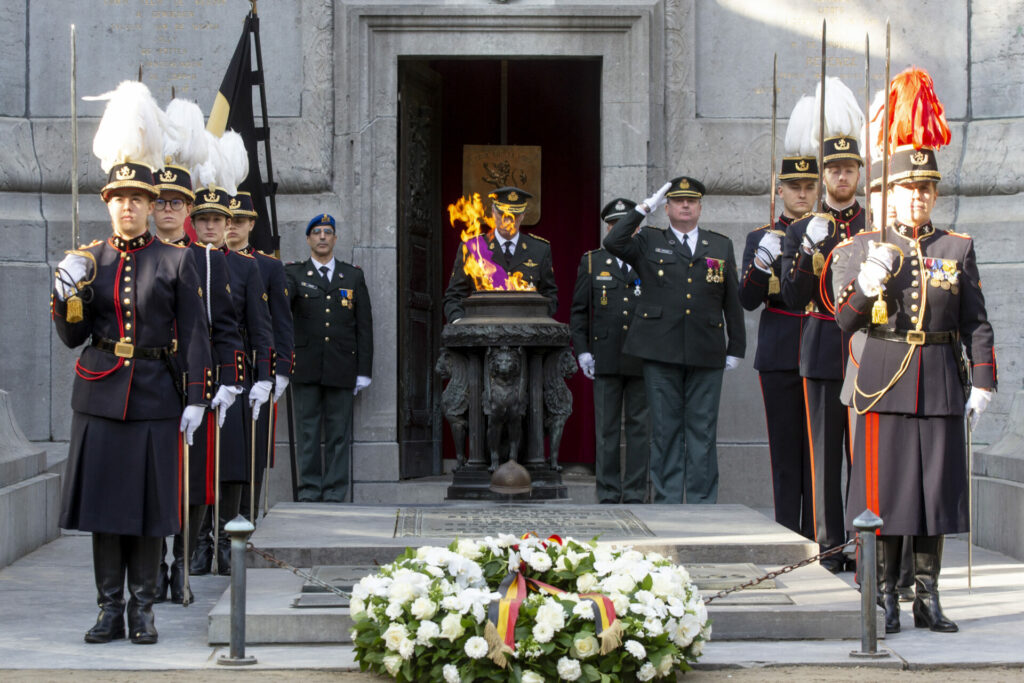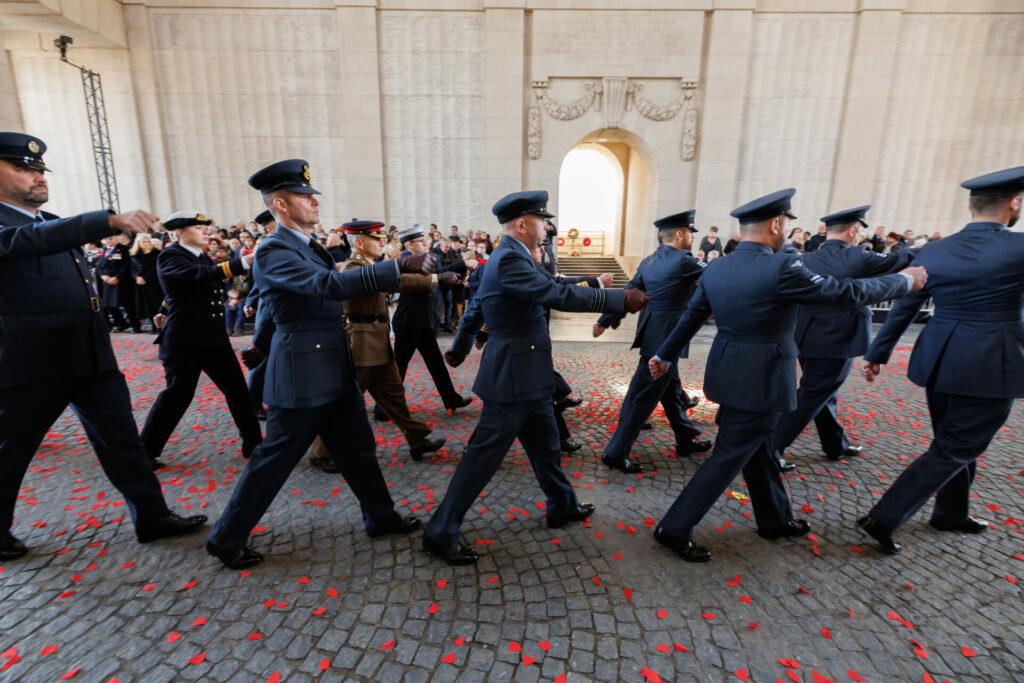Every year on 11 November, Armistice Day is commemorated across Europe and the United States as it marks the effective end of the First World War – a day to remember the millions of lives lost to a years-long conflict.
During the summer of 1918, German and Allied forces officially signed the Armistice agreement on 11 November around 05:00, following days of negotiations after heavy losses forced the Germans to the negotiating table.
The Armistice ordered both parties to terminate "hostilities on the Western Front, on land and in the air, within six hours of signature" – ushering peace into Europe "on the eleventh hour of the eleventh day of the eleventh month."
The document also ordered the "immediate evacuation" of German troops in invaded countries such as Belgium, France and Luxembourg "within 15 days following the signature of the armistice". It specified that German soldiers who failed to leave those territories within this period would be made prisoners of war.
Brussels was the centre of a turbulent unrest in the days surrounding the Armistice, as German revolutionary soldiers, who up until a few days earlier, had been the occupiers themselves, turned into the liberators.
Honouring the Unknown Soldier
Since the Armistice was signed, several monuments were constructed in cities across Europe to pay tribute to those who perished in the war. The Tomb of the Unknown Soldier was also erected to honour the unidentified soldiers killed during the war.
In Belgium, this symbolic monument lies at the foot of the Colonne du Congrès – which celebrates the creation of the Belgian constitution and which is crowned by a statue of Leopold I, the first Belgian monarch – in the Brussels city centre.
On Armistice Day, commemoration events are organised throughout the country, with Belgium's King Philippe taking part in the military ceremony for commemoration of the Unknown Soldier, in honour of the deceased of the First and Second World Wars, as well as soldiers killed in humanitarian and peace missions since 1945.

King Philippe of Belgium during a First World War commemoration at the 'Tomb of the Unknown Soldier' monument in Brussels, Friday 11 November 2022. Credit: Belga/Hatim Kaghat
In addition to the King, the Presidents of the House and Senate, the representatives of the Federal Government and the country's various governments will also be present during the ceremony, a press release by the Royal Palace stated.
In the city of Ypres, the scene of one of the bloodiest battles of the war, as well as of the unofficial Christmas Truce between German and British soldiers, crowds of people usually attend a commemoration of Armistice Day, during which army officers' rendition of the Last Post echoes through the Menin Gate war memorial.
What's open today?
As with other public holidays in the country, public and administration services will not operate on 11 November, and neither will banks. Postal services are also shut down for the day, meaning there will be no delivery of letters, packages or newspapers.
Belgium’s national railway service SNCB, bus service De Lijn and Brussels public transport company STIB will continue to operate during the bank holiday, but at a reduced Sunday service schedule.
As for groceries, most large Carrefour and Delhaize supermarkets will be open. Some Carrefour Express shops and Delhaize’s smaller Shop’n’Go markets will also be open, but only for reduced weekend hours. Aldi, Lidl and Colruyt will remain mostly closed.
Related News
- Nearly 250 WW1 letters donated to In Flanders Fields Museum in Ypres
- Brussels in 1918: Occupation, revolution and the Armistice
- A mysterious discovery: First World War hero Edith Cavell's plaque found in British garage
Many shopping malls and retail shops across the country, such as City 2 and Docks Bruxsel, will remain closed today. Most other stores, such as those on the Rue Neuve in Brussels for example, will also close their doors. Still, various smaller convenience stores may remain open for the holiday, depending on the choices made by their independent shop owners.
Most pharmacies will remain closed, but for urgent needs and medication, people can contact the pharmacist-on-duty in their municipality.
Meanwhile, amusement parks and zoos across Belgium will generally be open, but many of them will do so at a later hour and close sooner.
Police services remain accessible at all times, even on public holidays, though district offices are closed, meaning they are not available for administrative matters. Those needing urgent police assistance should call the emergency number 112.

